The Welsh Connection

Caramor - sailing around the world
Franco Ferrero / Kath Mcnulty
Mon 24 Apr 2017 02:35
41:04.05S 71:28.59W Autumn, it seemed, was here to stay. Lake Nahuel Huapi faded in and out of sight, lashed by sheets of rain from the east. There was no point flogging a dead horse, we wouldn’t be rock climbing today. We jumped on the number 20 bus and got off some time later at kilometre eighteen. On the way we passed the holiday resort ‘Las Malvinas’ … A bunch of entrepreneurs had had a great idea, to hire bicycles to tourists for a 27km closed loop circuit around Lake Moreno West and call it ‘Circuito Chico’ (little circuit). The route is on tarmac and is used by other traffic but the bike hire guys have also put a lot of effort into educating road users about cyclists.  Lake Moreno West The route has some good ups and downs and we really enjoyed the workout. At the top of the first hill, a family with a young daughter in a bike seat asked for a crash course on gear changing. They had been doing it right but couldn’t believe how hard it was cycling uphill and had concluded they must be missing some gears (or an engine!). We didn’t see them again, they probably turned back. 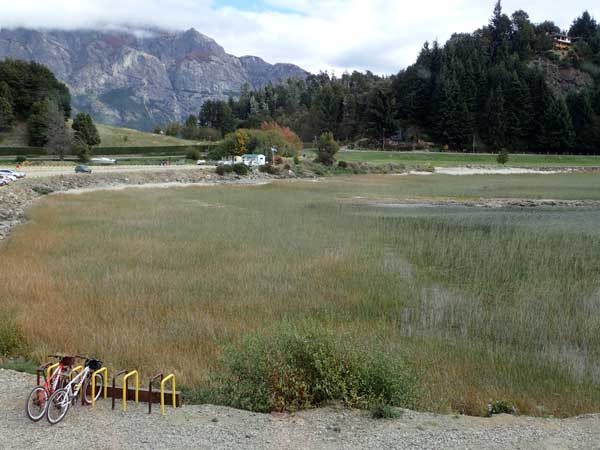 Our bikes in front of Bahia López, taken from the Nahuel Huapi National Park visitor centre As we thundered up the last hill back to the hire centre, a sign caught our eye. 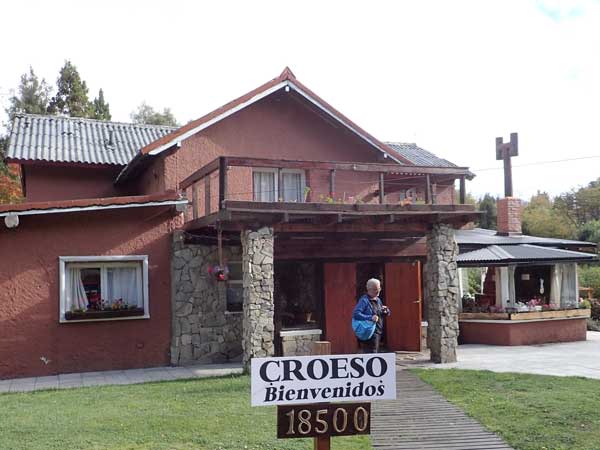 Croeso! We knocked at the door and a woman invited us in, in Spanish. Our “S’mae, sut dach chi?” sent her scurrying off to the kitchen and her husband Alex Gough appeared a few moments later. We sat down to sample one of his Welsh teas. The 'te Cymreig' was authentic and what he called ‘Welsh cake’ was in fact a very good ‘barabrith’. The other delicacies, however, had a distinct South American touch. 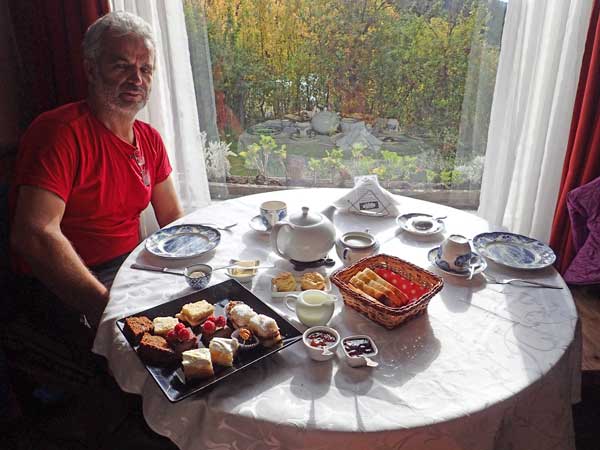 Franco preparing to tuck into his Argentinian Welsh Tea Alex speaks perfect English, acquired as a boy at a boarding school in Buenos Aires, but only a smattering of Welsh. He has never been to the UK and is hoping to travel there next year. His great grandfather Llwyd ap Iwan (born 1862) was the son of Michael Jones, the brain behind the Welsh Patagonian colony. Llwyd was a tiny infant when the first 153 Welsh settlers arrived at the Patagonian ‘promised land’ on the Mimosa one cold winter’s day in July 1865. They had been assured by the captain of the ship that the land was ‘suitable for colonisation’ when in fact it was an arid desert. Against the odds, the Welsh colonists founded y Wladfa. They called the bay where they had landed ‘Porth Madryn’ and the nearby river ‘Afon Camwy’. The indigenous people, the Tehuelche, already had a name for it ‘Chupat’ meaning ‘transparent’, which became ‘Chubut’ in Spanish. Llwyd arrived in Patagonia in 1886 to build the railway line that would link the Chubut Valley to the original settlement of Puerto Madryn. 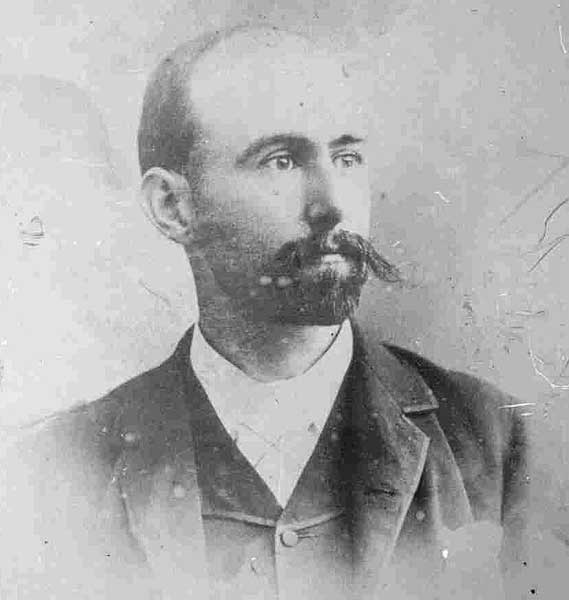 Llwyd ap Iwan (Public domain, https://commons.wikimedia.org/w/index.php?curid=41412904) He undertook several expeditions into the Andes to assess the potential to expand the railway further west and during these he established good relations with the indigenous people. He undertook detailed surveys and produced the first map of the Chubut Valley in 1888 which included many of the paths used by the Indians. The high level of alcoholism amongst his native friends saddened him and he particularly deplored the way the merchants behaved. Not only were they ruining the Indians by selling them liquor, they also impoverished them by charging inflated amounts for the goods they bartered. He wrote in his diary: “For half a pint of flour, these merchants are demanding a ‘chulengo’ (young guanaco) skin. Thirteen of these skins are enough to make a quillango (blanket made from young guanaco skins), worth 25-30 dollars in Buenos Aires.” Llwyd projected the construction of a canal to deviate water from the River Fénix to the sterile Deseado Valley so that it could be cultivated. He negotiated a land grant with the Argentinian Government for the establishment of a new Welsh colony. At the beginning of the twentieth century, he settled with his family in a small community near the towns of Esquel and Trevelin. He died, tragically, just a few year later in 1909 when he was robbed at work by two North Americans, Wilson and Evans. The family remained in the Esquel area and it was three generations later that Alex and his brother went further west to set up home in the Bariloche region. 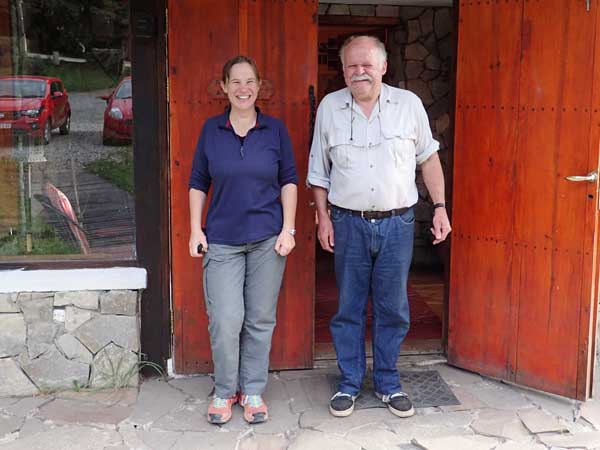 Kath with Alex Gough - isn’t that the same moustache? Thank you to Alex Gough and wikipedia for information about the early settlers and Llwyd ap Iwan. |